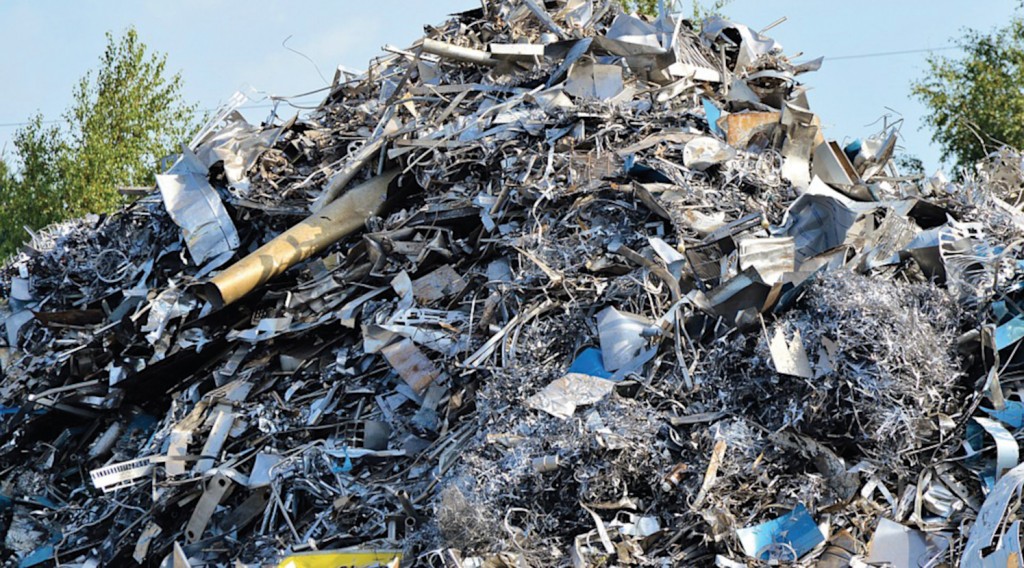Commentary: Improve recycling to help the planet
Legislators need to be more proactive and create real incentives for change

As the effects of climate change increase at an alarming rate and we collectively seek concrete actions in response, governments should be doing much more to prioritize the recycling industry's current and potential environmental benefits. In recent years we have seen a global legislative emphasis on the managing of end-of-life electronics and plastics, but these policies have been chiefly reactive.
To best achieve global sustainability and circular economy goals, governments everywhere must invest in recycling innovation before new products and materials begin to reach the end of their lives, and they must motivate manufacturers to incorporate recyclability into the design of their products.
This can be accomplished by rewarding manufacturers for using secondary materials and for designing products for recyclability, by setting effective recycled-content targets for producers and manufacturers, and by providing economic incentives for the creation of new recycling technologies and the construction of infrastructure to manage new or difficult-to-recycle materials.
In concert with the industry, lawmakers in the U.S. have shown significant willingness to stimulate new understanding in the recycling sector. Draft legislation introduced to Congress in November 2019 would provide up to $500 million in matching grants to state and local governments to support recycling.
The Realizing the Economic Opportunities and Values of Expanding Recycling (RECOVER) Act was introduced on America Recycles Day (November 15). It would provide funds to support recycling infrastructure, programs and education.
While Canada's Federal Government has established strong climate change and plastic waste priorities, we must show a greater range of leadership to bring about the required innovations to meet our stated sustainability goals.
Speaking at the UN Climate Change Conference in Madrid in December, Canada's environment minister Jonathan Wilkinson listed a wide range of emission-reduction initiatives that the government has spurred. These included "introducing a price on carbon, phasing out coal, making historic investments in renewables, building public-transit projects across the country and doubling our protection of nature."
Not once did Wilkinson mention the current and future impact of recycling. He did, however, make reference to the need for innovation.
"I am optimistic about technology's potential to make deep cuts to carbon emissions, carve new paths to prosperity and create jobs," said Wilkinson. "Canada is ready to be among the leaders in this global economic shift."
If this is true, Canada should lead by example and stimulate direct innovation in the recycling industry. First, by creating procurement programs that prioritize highly recyclable products made with a high percentage of recycled material. Second, by providing fiscal incentives for manufacturers and recyclers to innovate for even greater environmental benefit. Importantly, these innovations must go well beyond a reduction in consumer plastic.
New products and technologies are entering the scrap stream every day. As consumer products continue to evolve, the recycling of these products represents new opportunities to reduce waste and carbon emissions. Hybrid vehicle batteries are a prime example of a product that is increasingly reaching the end of its life but cannot yet be easily recycled. Safely and efficiently handling new products like these requires developing the necessary infrastructure. Without an established end market for the materials, there is currently little incentive to make the investment in recycling.
CARI supports the Government of Canada's announced intentions to sustainably "carve new paths to prosperity" through enhancing circularity and durability of goods - but intentions and language refinement can only carry so much weight. As an industry, we need innovation in areas that reach beyond how we are currently operating, and recyclers deserve greater recognition for the role they play in creating a greener planet. That's why real incentives should be put in place as soon as possible to reward and expand upon the concrete environmental benefits that come from recycling today, for a better tomorrow.
Tony Martins is communications coordinator at Canadian Association of Recycling Industries (CARI).
This article was originally published in the March 2020 edition of Recycling Product News magazine, Volume 28, Number 2.



